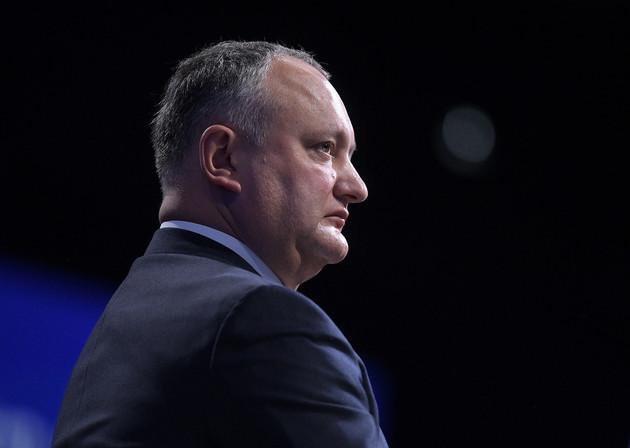The Party of Socialists of the Republic of Moldova (PSRM) and the Democratic Party of Moldova (PDM) formed a majority in the Parliament of Moldova. It was unexpected, since the two parties were considered antagonists, if not totally, then at least in matters of the country's foreign policy. Moreover, it was through the efforts of the socialists that a crisis was provoked, as a result of which the democrats lost power, and their leader, the informal ruler of Moldova, tycoon Vladimir Plahotniuc, fled the country, persecuted by the laws of both his homeland and several other states.
According to unconfirmed rumors, Plahotniuc fled to the United States. But it turns out that neither criminal prosecution, nor distance prevents him from participating in the political life of Moldova. Moreover, to participate effectively, preserving the position of an informal ruler, of which he was accused by the same socialists.
The agreement on the new coalition was signed by the chairman of the parliament, leader of the PSRM Zinaida Greceanîi and the chairman of the PDM, former Prime Minister Pavel Filip. "We take responsibility for managing the country along with the PSRM," Filip said. "We agreed on the formation of a parliamentary majority ... This implies the creation of a social-democratic alliance," Grechaniy said. "The new majority will pursue a balanced foreign policy. We have committed ourselves to comply with the association agreement with the EU, as well as all international agreements that have been concluded so far."
However, observers note that the agreement makes no mention of Chisinau's interest in the Eurasian Economic Union (EAEU), in contrast to European Union aspirations. Nothing was said about the EAEU. So,one thing can be assumed - Moscow’s attempts to drag Moldova into its orbit by courting the informal leader of the PSRM, President Igor Dodon have so far failed. All of his statements, declaring interest in the EAEU, hinting at Moldova's possible entry into the alliance, even as an observer, were empty. At least for now.
The assumption takes on real shape, given the fact that the pro-Western democrats who are supposed to have 5 seats in the government, take on the key ones - foreign affairs, defense, integration, the economy and education. In addition, Prime Minister Ion Chicu, who was a member of the Democratic Party and left after being elected head of the Cabinet, which by law implies political apathy.
President Dodon expressed satisfaction with the agreement and the coalition. According to him, the country will finally have a government, and if it turns out to be sustainable, then it will also have long-term political stability and effective power, which will help to avoid early parliamentary elections undesirable for the country.
In the parliament, the Socialists have 36 seats out of 101, the Democrats have 23 seats. This is enough to form a majority and approve various decisions requiring at least 51 votes. Therefore, experts have already said that after the approval of the Cabinet, one should expect not only strengthening of the pro-Western and weakening of the pro-Russian vectors of Chisinau, but also changes in the negotiation process to resolve the conflict in Transnistria and weakened Moscow’s influence on negotiations. It cannot be otherwise, if the foreign policy and national security strategy are controlled by pro-European forces - expansion of cooperation with NATO, the U.S. and the EU; further rapprochement with Romania, up to the long-planned unification of the energy sector; and at the same time curtailing ties eastward, i.e. with Moscow and the EAEU, right up to the outburst of anti-Russian rhetoric and anti-Russian actions will be evident in the near future.
Thus, the emergence of an unexpected coalition once again crossed out Moscow’s actions to restore its influence in Moldova. As many experts predicted, Dodon turned out to be a weak ally. But he could not be a strong one, according to the Constitution of Moldova. As though Moscow didn't know or forgot it. Or it just turned out that it had no one else to put on. And even if Igor Dodon wins the presidential election in autumn and extends his powers, one shouldn't pin hopes on it - other forces and persons bear rule in Moldova.







